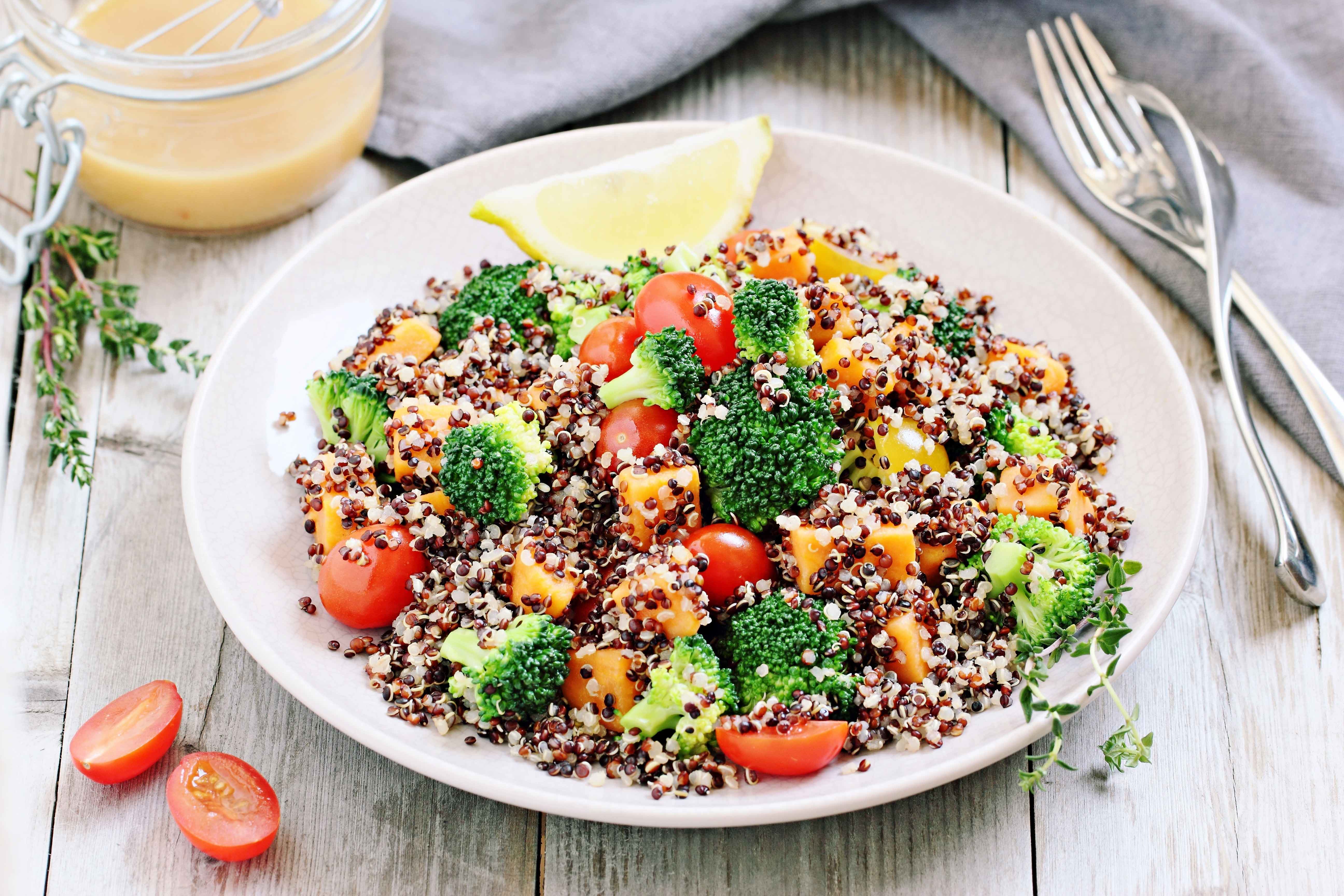Sometimes, you anticipate eating a lot at a buffet, party, or holiday meal. Other times, over-eating is a pattern rather than an exception. How much is truly too much? And if you are indeed at that point, how do you cut back?
What is over-eating?
Over-eating is eating beyond what is needed to fuel your body. It is eating past the point of fullness. When you over-eat, you eat even though you are not hungry. If it becomes a habit, it can lead to weight gain and ईटिंग डिसऑर्डर. Whether intentional or not, all do it at some point. The short-term symptoms of over-eating are often just related to stomach discomfort, but there are long-term consequences of over-eating which, over time, can negatively impact your health.
It often happens when your body feels deprived—skipping meals or restricting certain foods can lead to intense hunger, making you more likely to eat large portions or choose unhealthy options later. Emotional stress, boredom, and mindless eating can also trigger over-eating.
It is important to recognize whether you are over-eating and, if you are doing so frequently, take steps to reduce the behavior.
The psychology of over-eating
Over-eating is very common, and it’s biological. When you are stressed, your body makes more of a hormone called cortisol. Increased cortisol is a fight-or-flight response that, among other things, tells you it’s time to find food. It can make you crave foods high in sugar, fat, or salt. How fast you eat, what you eat, and when you eat can all contribute to over-eating.
Over-eating causes include:
Emotional eating
You are more likely to eat when stressed, sad, or in a bad mood. Eating causes your brain to release endorphins, which are feel-good hormones. So, you eat excessively, not necessarily because you are hungry, but because it feels good.
Boredom eating
It’s not unusual to reach for a snack when there isn’t much else to do, even when you aren’t hungry. You might find yourself eating mindlessly because you are bored or distracted. It may have health implications, including weight gain. When over-eating becomes a habit, it is mostly consuming junk, packaged, processed foods, like chips, sweets, cakes, cookies, chocolates, etc., which can lead to cholesterol and डायबिटीज.
Social and cultural influences on eating habits

In social situations, to connect with family and friends, you may be more distracted, nervous, or pressured to eat as everyone else is eating, even if you are no longer hungry. Your culture also influences what you eat, why, and how often you eat.
How to control over-eating?
The question looms – how to stop over-eating? If you recognize the signs and are ready to take action, here are a few strategies to help you avoid over-eating:
1 Mindful eating: Tuning into your body’s cues
You might want to eat for many reasons, but you need to eat for only one: nourishing and energizing your body. Be sure you are not falling into the trap of eating mindlessly just to eat. Being mindful about your meals and what you are eating is important since paying attention to your body’s cues can help you connect with nourishing food.
2 Portion control and balanced meals
Portion size is critical. Take advantage of nutrition food labels and reputable sources’ recommended amounts of foods. These guidelines can set the baseline for a realistic serving size. You might also try eating off a smaller plate. Eat a balanced meal comprising a variety of fresh fruits and vegetables with adequate proteins, carbohydrates, fats, vitamins, and minerals. Also, include a source of fiber, like salads, which makes you feel full after eating.
3 Healthy snacking alternatives

Avoid overeating calorie-dense foods or processed foods, including those high in:
- नमक
- Added sugar
- Saturated and trans fats
- Empty calories
Fill your plate with vegetables containing more fiber, which will make you feel full and hence slow down your digestion. Here are some healthy snacking alternatives that can help you avoid over-eating:
- Yogurt
- Fruits like grapes, kiwi, cherries, etc.
- A combination of nuts, seeds, dried berries, or fruits
- Roasted chickpeas
- ओटमील
When choosing snacks, you can also consider foods like makhanas or trail mix that are low in fat and sugar and high in fiber and water.
Managing emotional eating triggers
You could be using a food solution to fight an emotional issue. Recognizing this behavior and processing your emotions are important steps to reduce over-eating. Find other ways to fulfill yourself emotionally:
- अगर you are depressed or lonely, call someone you trust or seek help/therapy, play with your dog or cat, or look at a favorite photo.
- If you are anxious, dance to your favorite song, squeeze a stress ball, or brisk walk.
- If you are exhausted, treat yourself to hot tea, a shower, or wrap yourself in a warm blanket.
- If you are bored, read a good book, explore the outdoors, or turn to an activity you enjoy.
Avoid distractions
Whether working through lunch at the computer or snacking on chips while catching up on your favorite TV show, eating while distracted is common for most people.
While this habit may appear harmless, it can lead to over-eating.
Make an effort to turn off or put away potential distractions. Focusing on your meal during mealtime can help prevent over-eating.
6 Do not cut off all the food
To control over-eating, avoid cutting out entire food groups or drastically restricting your diet. Instead, focus on balanced meals that include a variety of nutrients, eat mindfully, and listen to your body’s hunger and fullness cues. This approach helps prevent cravings and keeps over-eating in check naturally.
7 Give volumetrics a try
Volumetrics is an eating approach that emphasizes filling up on low-calorie, high-fiber foods such as non-starchy vegetables. Consuming these foods and drinking water before meals can help you feel full, potentially reducing over-eating.
Examples of volumetrics-friendly foods include grapefruit, salad greens, broccoli, beans, tomatoes, and low-sodium broth. Eating a large salad or a bowl of low-sodium, broth-based soup before lunch and dinner may effectively prevent over-eating.
8 Avoid taking stress
Chronic stress increases cortisol levels, a hormone that boosts appetite. In some cases, stress can lead to over-eating, heightened hunger, binge eating, and weight gain.
There are many simple ways to lower your daily stress levels. Consider listening to music, gardening, exercising, or practising yoga, meditation, or breathing techniques.
9 Eat more fiber-rich foods
Choosing foods that are high in fiber, like beans, vegetables, oats, and fruits, can help keep your body feeling satisfied longer and reduce the urge to over-eat. Snacking on nuts, adding beans to your salad, and including vegetables in every meal may help decrease the amount of food you consume.
10 Stick to a regular meal schedule
When trying to lose weight, many people eliminate meals, hoping it will reduce their calorie intake. While this approach may work in some cases, like intermittent fasting, skipping meals can lead to over-eating later in the day. Eating more often throughout the day is linked to improved diet quality and lowers your risk of developing metabolic syndrome.
For instance, some individuals skip breakfast or lunch to cut calories, only to compensate by eating more at dinner. However, having a balanced lunch may help prevent over-eating later on.
11 Keep a food and mood journal
Keeping a food diary or using a mobile app to track your eating habits may help reduce over-eating. Employing self-monitoring techniques, such as maintaining a food diary, can support weight loss. Additionally, using a food journal can help identify situations and emotional triggers that lead to over-eating and foods that are likely to provoke binge eating.
12 Surround yourself with health-minded eaters
The food choices of your dining companions may significantly influence your food intake more than you realize. People often tend to eat portions that resemble those of their dining partners, so dining out with friends who over-eat might lead them to over-eat as well. Additionally, people are less likely to order healthy options if their dining partner doesn’t choose them. Opting to eat with family and friends who share similar health goals can help you stay on track and lower your chances of over-eating.
13 Add more protein to your diet
Eating a high-protein breakfast may help reduce hunger later in the day. Choosing a protein-rich breakfast like eggs tends to lower levels of ghrelin, a hormone that stimulates hunger. Opting for higher-protein snacks such as soybeans can decrease your appetite and may also promote an increase in your skeletal muscle mass.
14 Stabilize your blood sugar levels
Eating white bread, cookies, candy, and other high-glycemic-index carbs will likely cause blood sugar levels to spike and then fall quickly. This rapid fluctuation in blood sugar has been shown to promote hunger and can lead to over-eating.
Opting for foods with lower glycemic indexes can help prevent blood sugar spikes and may reduce over-eating. Beans, oats, and brown rice are all excellent choices.
15 Refrain from alcohol to prevent uncontrollable eating
Drinking alcohol can lead to over-eating by lowering your inhibitions and stimulating your appetite. Consuming several drinks in one sitting may increase feelings of hunger. Cutting back on alcohol can be an effective way to reduce over-eating.
16 Replace sugary drinks with water
Drinking sugary beverages like soda and juice can lead to weight gain and increase the risk of certain diseases, such as diabetes. Studies have shown that consuming sweetened drinks with meals may be associated with over-eating as well. Opting for water instead of sweetened beverages can help reduce over-eating.
17 Break unhealthy food habits gradually
Making sudden, drastic changes can backfire. Instead, start small—swap sugary snacks for healthier options, gradually reduce portion sizes, and establish consistent meal routines. Over time, these manageable steps lead to lasting, healthier eating habits without feeling deprived.
18 Include healthy fats that help you feel full
While high-fat foods are often linked to weight gain and over-eating, eating foods abundant in healthy fats can help you consume less. Incorporating healthy fats such as avocados, nuts, seeds, nut butters, and olive oil into your diet may enhance your satisfaction after meals and decrease over-eating.
19 Keep your health goals in mind
Setting short-term and long-term goals and frequently referring to them may help you stay on track and curb the urge to over-eat.
Understanding the reasons for overcoming over-eating and recognizing how it hinders your progress towards health and wellness goals can motivate you to create new eating patterns.
Writing down motivational quotes and placing them in visible areas around your living space can inspire you to adhere to a plan throughout the day.
20 Seek professional help if needed
It’s important to distinguish between over-eating and binge eating disorder (BED).
Binge eating disorder (BED) is recognized as a psychiatric condition. Individuals with BED typically require treatment from a team of medical professionals to overcome it.
BED is characterized by recurring episodes of consuming a large amount of food very quickly, to the point of discomfort, even when not hungry. After a binge, a person may experience feelings of shame or guilt related to the behavior.
If you believe you might have BED, it’s crucial to seek help. Discuss treatment options with your healthcare provider.
21 Stop thinking of quick diets: Build a sustainable mindset
Ditch the ‘all or nothing’ mentality and focus on long-term habits instead of quick fixes. Embrace balance, flexibility, and self-compassion in your eating choices. A sustainable mindset helps you enjoy food without guilt and maintain healthy patterns for life.
Break the over-eating cycle
Sometimes over-eating happens occasionally, especially when you have access to more food than usual. Other times, it becomes a pleasurable yet unhealthy habit that reinforces itself. Whatever the cause, you must avoid it by implementing the mentioned strategies. Lastly, over-eating might also be a sign of something more complicated. If you find yourself over-eating often, talk to your dietitian or doctor.
FAQs about how to stop over-eating
Struggling with over-eating? These frequently asked questions can guide you towards healthier, more mindful eating habits.
- How do I stop over-eating?
Start by eating regular, balanced meals, staying hydrated, and practising mindful eating. Avoid distractions while eating, manage stress, and get enough sleep to help regulate your appetite.
- What is over-eating a symptom of?
Over-eating can be linked to emotional stress, boredom, habit, or even underlying mental health issues like binge eating disorder or anxiety. It is important to explore the root cause for proper management.
- Is over-eating a sin?
From a health perspective, over-eating is not a moral failing—it is a behavior that can be adjusted with awareness and support. Some religious views may see it differently, but focusing on health and well-being is more constructive.
- Can I sit after eating?
Yes, sitting after eating is fine. Avoid lying down immediately, as it can lead to indigestion or acid reflux. A light walk can help with digestion if you prefer to move.
Key Takeaways
- Emotional eating and boredom can lead to over-eating.
- Manage emotional eating triggers, avoid distractions, and consider using volumetrics to control over-eating.
- In addition, incorporate more protein into your diet, swap sugary drinks for water, and cultivate a sustainable mindset.
Stay tuned to the Activ Living Community. Keep up to date with the latest health tips and trends through expert videos, podcasts, articles, and much more on पोषण, फिटनेस, सचेतन, और लाइफस्टाइल से जुड़ी बीमारियां like Asthma, Blood Pressure, Cholesterol, and Diabetes. Activ Living ke saath sahi sehat ki shuruat ABHI karo.
You may also be interested in the following blogs:
Popular Searches
How to lower blood pressure | Fruits good for liver | Unhealthy foods | रागी के लाभ | बेसल मेटाबोलिक रेट | हाई ब्लड प्रेशर के लिए एक्यूप्रेशर पॉइंट्स | Ayurvedic medicine for blood pressure | How to control cholesterol at home | Homeopathy for Asthma | Biological Age | Home remedies for TB | Natural beta blockers | Negative effects of internet | Types of walking | ब्लड प्रेशर कैलकुलेटर | ब्लड शुगर कैलकुलेटर | BMI कैलकुलेटर





 1800-270-7000
1800-270-7000










